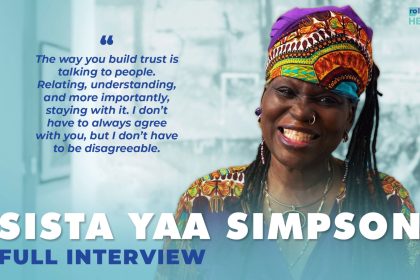Unconscious health bias is a term that might sound complex, but it represents something many of us encounter daily without even realizing it. It refers to the subtle, often unnoticed attitudes and beliefs that affect how health care is delivered and received. These biases can influence everything from the diagnosis and treatment of patients to the overall quality of care they receive. This issue isn’t just a theoretical problem; it has real-world consequences that can affect lives, perpetuate inequality, and undermine the effectiveness of our health care systems.
Understanding and addressing unconscious health bias is essential in a world that strives for fairness and equality. It’s a challenge that goes beyond personal beliefs and enters the realm of systemic issues, deeply rooted in societal structures. This article delves into what unconscious health bias truly means, its impact on patients and health care providers, and why addressing it is critical for achieving equitable health outcomes for all.
What is unconscious health bias?
Unconscious health bias refers to the automatic, often unintentional, preferences or prejudices that influence how individuals think about and interact with others in health care settings. These biases can be based on race, gender, age, socioeconomic status, or other factors, and they often operate below the level of conscious awareness.
For example, a health care provider might unconsciously assume that a patient from a certain ethnic background is more likely to be non-compliant with treatment, leading them to spend less time explaining the treatment plan. Alternatively, a physician might unconsciously view male patients as being more in control of their pain, leading to inadequate pain management for female patients.
These biases do not reflect a person’s values or intentions; rather, they are shaped by societal norms, media representations, and personal experiences that form over time. The insidious nature of unconscious bias means that even well-meaning individuals can unknowingly perpetuate it, leading to disparities in health care.
The impact of unconscious health bias on patients
The impact of unconscious health bias on patients can be profound and far-reaching. It can lead to disparities in the quality of care, misdiagnoses, and even preventable deaths. Patients subject to bias may receive less thorough examinations, fewer diagnostic tests, and less aggressive treatments compared to those not subject to the same biases.
One of the most troubling aspects of unconscious bias in health care is its contribution to health disparities among different racial and ethnic groups. Studies have shown that Black and Hispanic patients, for example, are less likely to receive pain medication for the same conditions as White patients. Similarly, women are often underdiagnosed or misdiagnosed for conditions like heart disease because their symptoms are perceived differently compared to men.
The emotional toll on patients cannot be overlooked either. Patients who feel they are not being heard or taken seriously may lose trust in the health care system, leading to delays in seeking care, non-adherence to treatment plans, and ultimately worse health outcomes. This erosion of trust can perpetuate a cycle of poor health and further inequality.
The role of health care providers in addressing unconscious bias
Health care providers are crucial in identifying and mitigating unconscious health bias. The first step in this process is awareness. Health care professionals must recognize that unconscious biases exist and that they can influence their decisions and interactions with patients. This awareness can be cultivated through training programs, workshops, and self-reflection.
One effective approach is implementing implicit bias training, which helps health care providers become aware of their biases and learn strategies to counteract them. This training often includes techniques such as mindfulness, perspective-taking, and developing empathy for patients from diverse backgrounds. By becoming more aware of their biases, health care providers can make more equitable decisions and provide better care to all patients.
Moreover, institutions can support this effort by promoting a culture of diversity and inclusion within the health care setting. This can be achieved through policies that encourage diverse hiring practices, provide ongoing education on cultural competence, and create an environment where all patients feel valued and respected.
The broader implications of unconscious health bias
Unconscious health bias extends beyond individual patient-provider interactions. It reflects broader societal inequalities and contributes to systemic disparities in health outcomes. When unconscious bias is left unchecked, it can lead to a health care system that consistently under-serves certain populations, reinforcing cycles of poor health and limited access to care.
For example, marginalized communities often face significant barriers to accessing quality health care. These barriers can include economic challenges, geographical isolation, and language differences. When unconscious bias is added to the mix, these communities may receive even lower-quality care, exacerbating existing health disparities.
The implications of unconscious health bias are not limited to patient outcomes; they also affect the efficiency and effectiveness of the health care system as a whole. A health care system skewed by bias is less likely to allocate resources effectively, leading to increased costs and decreased overall health outcomes. Addressing unconscious bias is, therefore, not just a moral imperative but also a practical necessity for creating a more sustainable and equitable health care system.
Why addressing unconscious health bias matters
Addressing unconscious health bias is essential for several reasons. First and foremost, it is a matter of justice. Every patient deserves to receive high-quality care, regardless of their background or identity. Ensuring that all patients are treated fairly and equitably is a fundamental principle of ethical health care.
Secondly, addressing unconscious bias is critical for improving health outcomes. When health care providers are aware of and actively work to counteract their biases, they can make more accurate diagnoses, offer more effective treatments, and build stronger relationships with their patients. This, in turn, leads to better health outcomes and a more trusted health care system.
Finally, addressing unconscious health bias is necessary for building a more inclusive and equitable society. Health care is a fundamental human right, and ensuring that it is delivered equitably is essential for reducing social inequality. By addressing unconscious bias in health care, we take a significant step towards achieving broader social justice and equity goals.
Conclusion: The path forward
Unconscious health bias is a pervasive issue that has significant consequences for patients and the health care system as a whole. However, it is not an insurmountable problem. By raising awareness, implementing effective training, and fostering a culture of diversity and inclusion, health care providers and institutions can begin to mitigate the impact of unconscious bias.
The journey towards eliminating unconscious health bias is ongoing and requires the commitment of everyone involved in the health care system. By understanding what unconscious health bias means and why it matters, we can take meaningful steps toward creating a health care system that serves all patients equally and effectively, ultimately leading to better health outcomes for everyone.
In a world that values fairness and equality, addressing unconscious health bias is not just a health care issue—it is a societal imperative. The time to act is now, and individuals and communities will feel the benefits of doing so for generations to come.
This story was created using AI technology.












